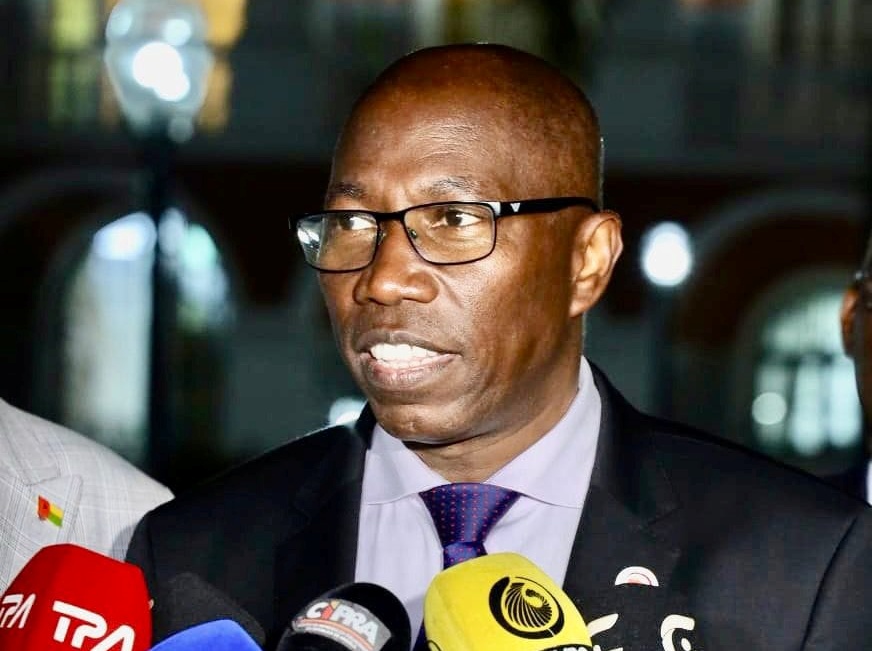Gambiaj.com – (Bissau, Guinea-Bissau) – The president of the African Party for the Independence of Guinea and Cape Verde (PAIGC), Domingos Simões Pereira, has launched a scathing attack on President Umaro Sissoco Embaló’s administration, accusing it of transforming the country’s defense and security forces into an “instrument of personal power” rather than a guarantor of national stability.
Speaking during the public presentation of the manifesto of presidential candidate Fernando Dias da Costa, Simões Pereira denounced what he described as the politicization of state institutions and the growing climate of fear in Guinea-Bissau.
He claimed that under Embaló’s rule, “corruption has become a mode of governance, arbitrariness has become the norm, and fear a political tool,” adding that freedoms and rights are being steadily eroded.
Accusations of Drug Trafficking, Social Decay, and Lavish Spending
The PAIGC leader further alleged that drug trafficking has intensified in the country, operating “under political protection.” He argued that the government’s tolerance of such illicit networks has undermined both the rule of law and Guinea-Bissau’s international credibility.
Simões Pereira also drew attention to what he described as the collapse of social services, saying that schools are “deteriorating” and hospitals are “devoid of the basic means to treat patients.”
He criticized the president’s frequent foreign trips, claiming that the “large sums” spent on these could have been used to address the country’s pressing social challenges.
President Embaló has repeatedly cited the redevelopment of Bissau’s main square as one of his administration’s flagship achievements. However, Simões Pereira dismissed such projects as “symbols of progress that conceal dubious deals,” alleging that they were conducted without transparent bidding and served to enrich a select few.
Allegations of Repression and Human Rights Abuses
The PAIGC leader also accused the government of systematically repressing dissent. He cited “reports of direct threats made by the head of state himself against ordinary citizens, opinion leaders, religious figures, young people, and women,” asserting that the atmosphere of fear extends even to the Guinean diaspora.
Simões Pereira condemned the existence of what he described as a “palace militia,” an unofficial armed unit allegedly operating “outside any legal or constitutional framework,” which he claims is responsible for “persecutions, kidnappings, beatings, torture, and violations of fundamental rights.”
Concluding his address, Simões Pereira urged citizens to resist the cycle of violence and reclaim the nation’s dignity. “It is time for the Guinean people to put an end to fear and restore hope to our Republic,” he declared.










